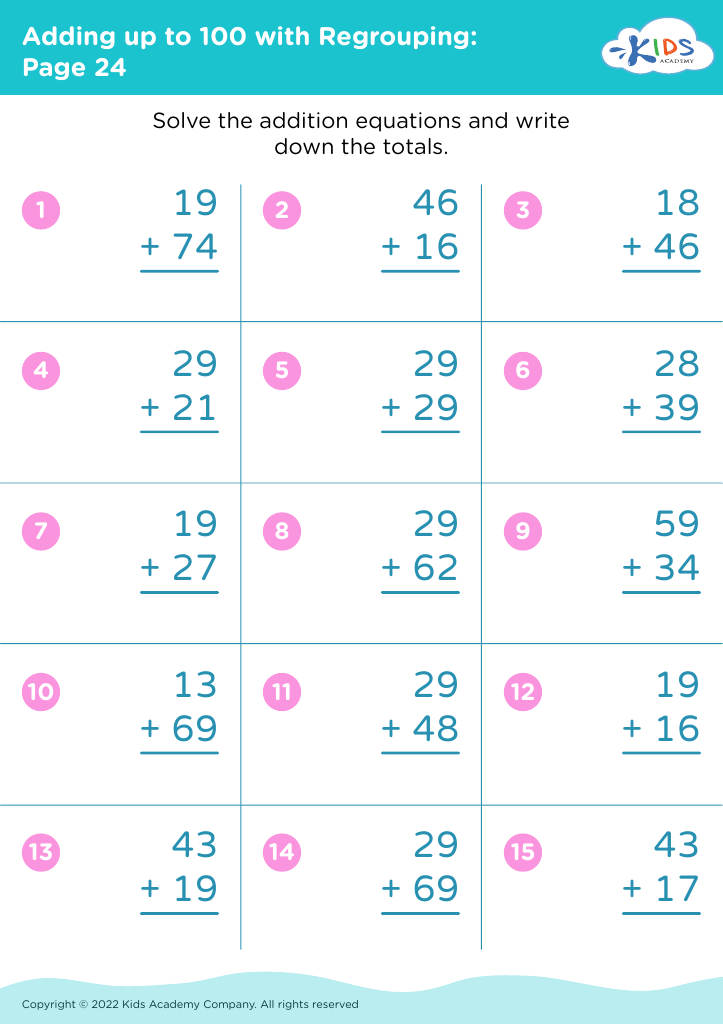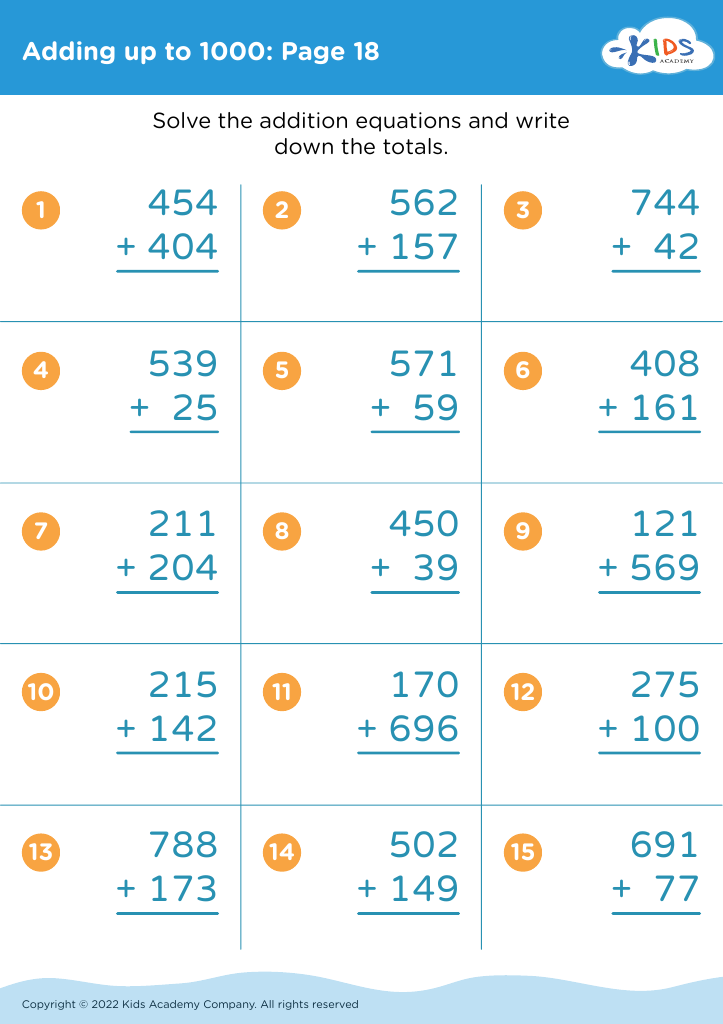Spatial awareness Addition Worksheets for Ages 6-7
5 filtered results
-
From - To
Enhance your child's math skills with our engaging Spatial Awareness Addition Worksheets tailored for ages 6-7. Designed to boost both spatial recognition and addition abilities, these fun, interactive worksheets provide children with the tools they need to understand numbers in relation to space. Through various activities, young learners will practice addition problems while developing their problem-solving skills and spatial awareness, essential for future math concepts. Our worksheets cater to different learning styles, ensuring every child can succeed. Download now and make math a fun adventure while building foundational skills that will benefit them in school and beyond!
Spatial awareness is crucial for children's overall cognitive development, especially for ages 6-7 when they are exploring and understanding the world around them. It involves recognizing how objects relate to each other in space, which is fundamental for arithmetic, geometry, and later, more complex mathematics. Teaching spatial awareness through addition can significantly enhance children's problem-solving skills, as it helps them visualize numeric relationships and makes abstract concepts more tangible.
For teachers and parents, fostering spatial awareness in conjunction with addition can create a strong foundation for later learning. Children who have a solid grasp of spatial relationships are better equipped to tackle math concepts, leading to improved confidence and academic performance. Additionally, activities such as using blocks, puzzles, or spatial games not only make learning active and engaging but also encourage fine motor skills alongside cognitive growth.
Investing time in activities that promote spatial awareness helps children develop critical thinking and enhances their ability to organize, reason, and understand their environment. As children in this age group are naturally curious, incorporating spatial awareness into their daily learning will support holistic growth, preparing them for future academic endeavors and real-life problem-solving. Hence, both parents and teachers should prioritize this essential skill.











.jpg)














